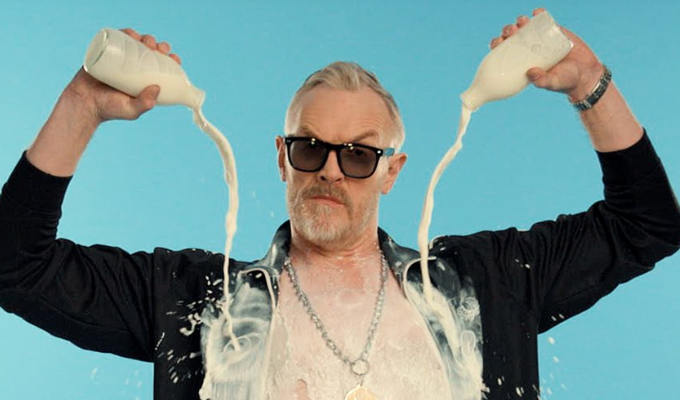Funny in theory
Academic's ideas of joke psychology
An American academic has come up with a theory of comedy that he says explains every joke.
Dr Peter McGraw, a professor of marketing and psychology at the University of Colorado in Boulder, postulates that humour always comes from what he terms a ‘benign violation’. That is the experience of knowing that something apparently unsettling or threatening is actually acceptable or safe.
Explaining his ideas at the Just For Laughs comedy festival in Montreal, Dr McGraw said: ‘We laugh at things that have their roots in potentially negative experiences - but at the same time see how they are safe.’
He said his theory applied to everything from being tickled by someone you trust – a physical attack that does no harm – to wordplay, ‘a linguistic violation where there’s some other explanation that makes it OK.’
Dr McGraw also said this explains why laughter is infectious as: ‘If the person next to you is laughing, that’s a sign that this is OK’.
And he said bad-taste jokes made people laugh if the subject did not affect them closely as ‘there's something about the distance that makes it benign’ – even if the topic is serious.
Similarly he said there was a ‘sweet spot’ in time where jokes about tragedies, for example, are recent enough to be relevant, but not too far away to lose the ‘violation’ element. ‘We don't make Civil War jokes any more as it’s so far away, it's too benign,’ he said.
But he admitted that while he was strong on theory – practice proved more difficult as he performed a stand-up routine an open mic night and ‘didn’t do too well’. ‘Failing at stand-up was a useful experience as it showed you can’t just rely on the lab,’ he said.
As part of his investigations into comedy, Dr McGraw has also analysed thousands of entries into the New Yorker magazine’s regular cartoon caption competition – and concluded there was a winning formula for jokes.
‘Shorter captions help,’ he said, ‘and you see that same brevity in stand-up. Winners were also less likely to have exclamation marks, and not directly reference what's in the picture, for example a desert.’
He also conducted an experiment when he took a group of New York ad executives out drinking, and asked them to come up with jokes as they became more intoxicated.
He said: ‘Things get funnier the more drunk you are, as you get more relaxed, that transforms violations into benign violations’
The group felt that they were coming up with increasingly hilarious ideas the more they drank, but when an independent study group later ranked the humour, they concluded there was no improvement in the comedy value over the first four drinks, but then it fell away sharply at the fifth drink – the exact opposite of what the group believed was happening.
Published: 28 Jul 2012






